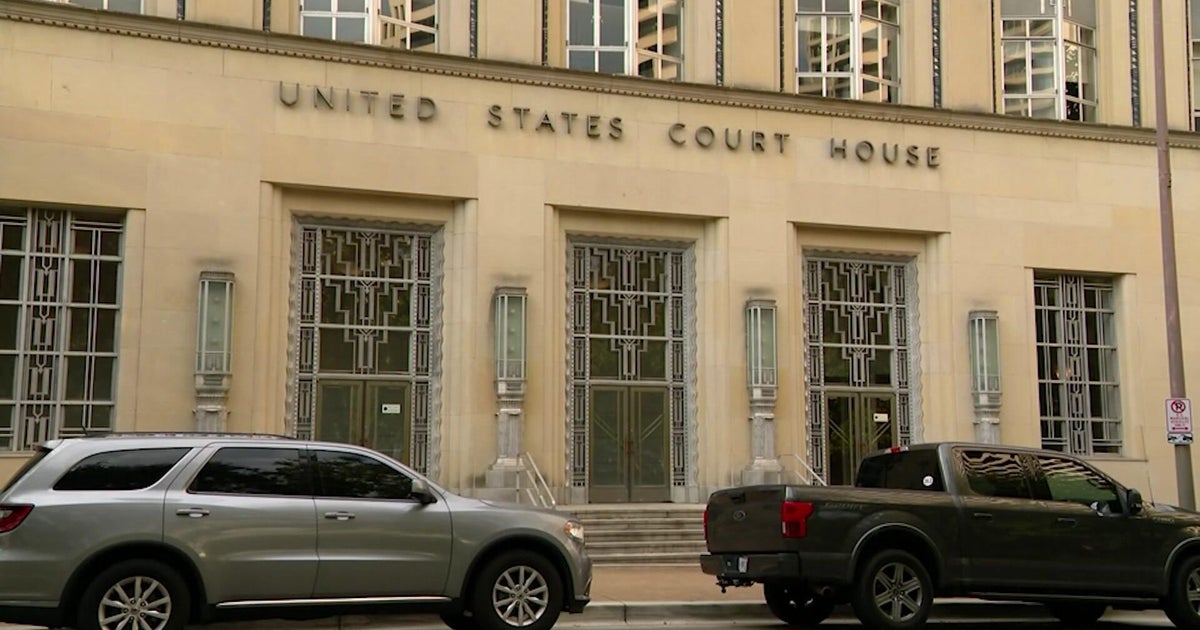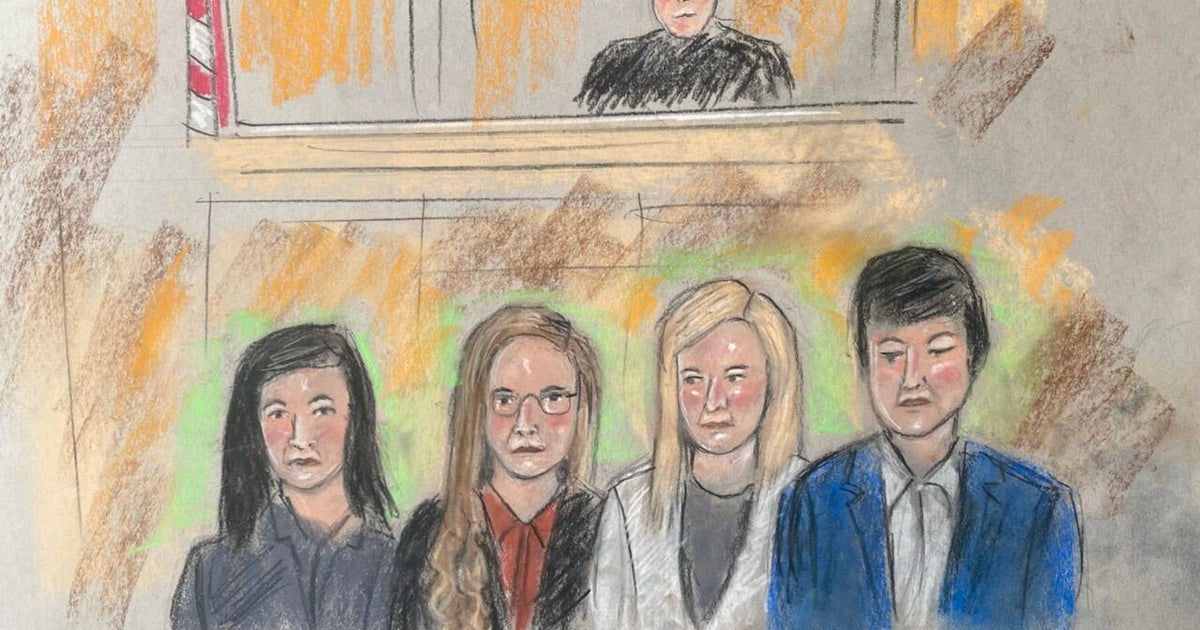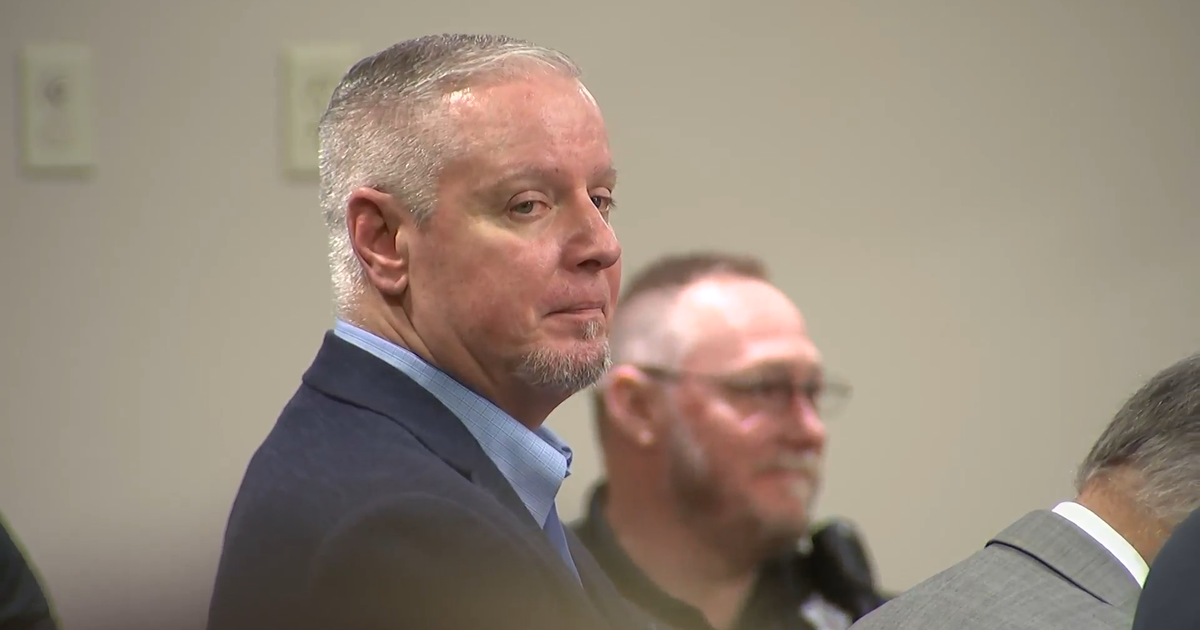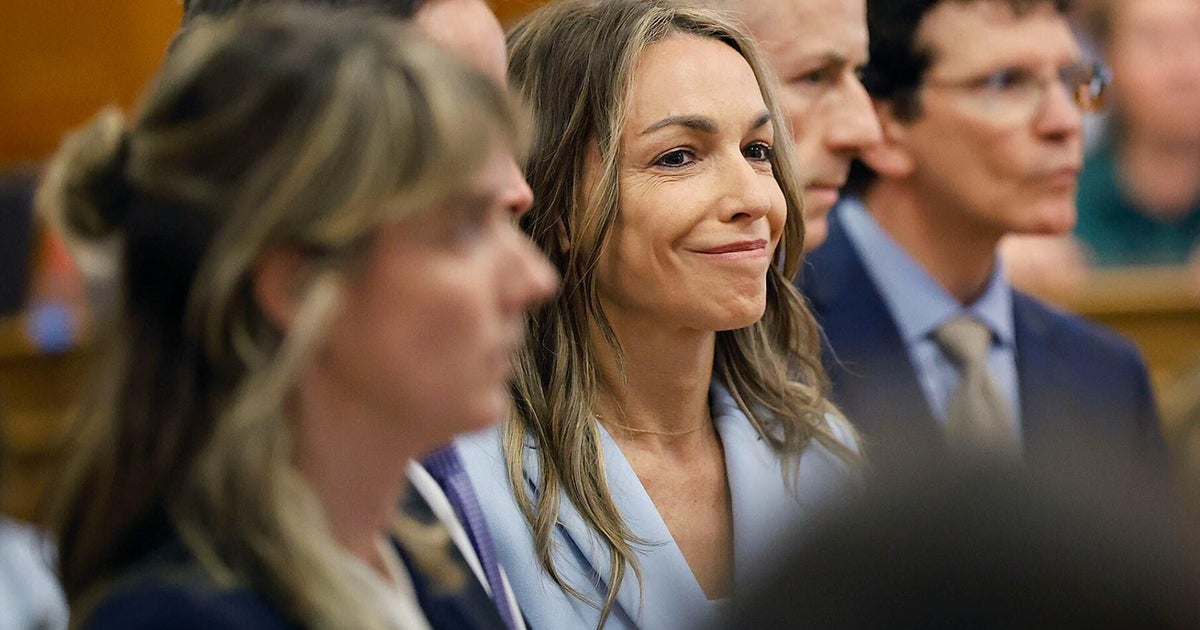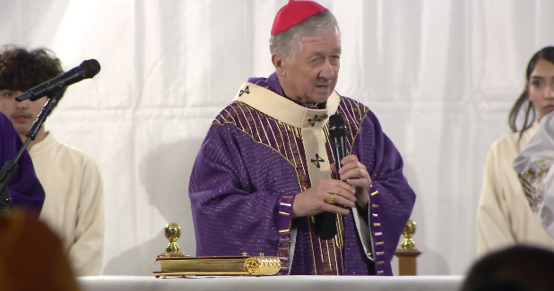Potential Blagojevich Jurors Worried About Impact Of Long Trial
UPDATED 04/25/11 5:38 p.m.
CHICAGO (WBBM/CBS) -- As former Gov. Rod Blagojevich sat through the second day of jury selection for his retrial on federal corruption charges, many prospective jurors were expressing concern that serving on an extended trial could cost them their jobs, or in some cases, their homes.
U.S. District Judge James B. Zagel questioned 25 potential jurors on Monday, dismissing 11 of them, in many cases due to the financial hardship that serving on a long trial would create for them.
Most potential jurors so far have said they do not know many of the details about the case, with only a handful so far saying they've followed the case closely.
LISTEN: Newsradio 780's John Cody reports
Podcast
One of the few people who said they knew a great deal about the case is an employee at the Chicago Tribune and used to work for WTTW-TV and the Chicago Sun-Times. Juror 138 said he works on a weekend entertainment section for the Tribune, and has not had any direct involvement in covering the Blagojevich case or the first trial.
The man, who is also the ex-husband of a state representative, said he regularly followed news coverage of the Blagojevich case, including newspaper editorials, but said he has not formed an opinion about whether or not Blagojevich is guilty. Even so, he was dismissed later in the day, when both prosecutors and defense attorneys said they would have challenged him being in the jury pool.
"A wise decision on the part of both sides," Zagel said. "It would have been a court's challenge if no one had challenged this. In fact, it would have been his own self-challenge."
Another potential juror, Juror 188, has a stepdaughter who works as a reporter for NBC 5 in Chicago. But, even more significantly for the judge and attorneys seemed to be the fact he had been unemployed for the past 16 months and was supposed to start his new job on Monday.
Several other jurors -- from a newlywed who just bought a house with her husband, to a self-employed painter -- said they were worried that sitting on a trial that could last several weeks could put them in dire financial straits.
Juror 128, a painter, said that he works a lot more often in the summer months and indicated on his questionnaire that serving on the jury could hurt his business. Defense attorneys also indicated they felt he would be biased against Blagojevich, noting that he said on his questionnaire that "all politicians are full of it" and that he found the general practice of campaign fundraising "shady."
Most of the allegations against Blagojevich involve him allegedly trying to obtain campaign contributions in exchange for official actions. Zagel said he believed it was more likely that the man was just trying to say whatever he could to get out of jury duty, rather than someone with such a universally negative opinion of politicians, but nonetheless, he agreed the man should be dismissed.
One man, Juror 143, a psychiatrist, said he is currently treating two patients who are suicidal and wrote on his jury questionnaire that "there could be possibly disastrous consequences" if he had to be away from his practice for several weeks.
Another potential juror, a middle-aged woman who works for a dentist's office, said she'd be able to get time off from work for jury duty, but that she wouldn't be paid for it, so she was worried that she might lose her home. Prosecutors and defense attorneys agreed to excuse the woman, Juror 145, from the jury pool.
The judge also agreed to dismiss a young woman, Juror 147, who had recently gotten married and bought a house with her husband. That woman told the judge they still owe a lot of money on the house and was concerned that they wouldn't be able to pay their bills if she were picked for the jury.
She also said she'd already made a decision about Blagojevich, based on the media coverage of the last trial, although she didn't say what that decision was and said she'd be able to set her opinion aside and judge the case fairly.
The judge also questioned a man who works as a self-employed painter who said he followed the Blagojevich case "extensively" before the first trial. But he didn't voice any opinion about the case.
Zagel seemed inclined to dismiss another potential juror who has four tickets to The Oprah Winfrey Show on May 10, which would be in the middle of the trial, but he said he wanted to figure out if it would be possible to let her go to to the show and adjust the trial schedule for her.
"I can fix this by not having trial that day, but that seems a little over the top," Zagel said. Instead, he indicated he would try to find out what time of day that Oprah show would be taped and decide if they could adjust the trial's schedule that day to allow her to attend.
Although most jurors have said they do not know much about the Blagojevich case itself, Zagel has spoken to several jurors about putting aside their preconceived opinions of the case or of politics or the legal system in general.
One woman, a retiree who said she spends much of her time knitting, including making quilts for a number of charities, said on her questionnaire that she believes most politicians are honest, according to Zagel.
But that woman, Juror 133, also said she believes most elected officials make decisions that benefit campaign donors in exchange for campaign contributions.
"I don't think it's right, but I think most of them do it," she wrote on her questionnaire.
But when asked if she could put her general opinion of politicians aside and judge the case only on the evidence presented at trial, she said, "I believe I can."
Another woman, Juror 137, a state agency employee who works with children between the ages of 3 and 5, said she had seen some news coverage of the first trial, but felt it was very repetitive.
She wrote on her questionnaire that "media usually repeats the same information," and that the information is not enough to make a decision about the defendant's guilt or innocence. Zagel told her "you're right."
Another woman, Juror 135, who works part-time as a nurse, said she only knew a little bit about the case and wrote on her questionnaire that she remembers Blagojevich accusing prosecutors of withholding information that could prove him guilty.
"You can't help but hear things that are said on the news," she said. But she also told the judge she would have no problem putting what she's heard about the case aside and being a fair juror.
Blagojevich Called 'A Bit Off Center'
One young woman, Juror 130, who works as an event planner for a beer company, said she regularly followed media coverage of the first trial. Zagel said that, from reading her questionnaire, it was clear she thinks Blagojevich is "a bit off-center."
When the judge reminded the woman that she would not be asked to judge whether she likes Blagojevich, but only the evidence in the case, the woman said "If you're laying facts out in front of me, I could make the distinction."
Earlier, Zagel questioned a woman who used to be in the Navy and has a son who has gone to a doctor at Children's Memorial Hospital, which was the target of an alleged shakedown attempt by Blagojevich.
Prosecutors have said Blagojevich tried to get a campaign contribution from the hospital's CEO in exchange for releasing additional state funding for Children's Memorial. But the woman, Juror 136, said she hasn't paid much attention to the Blagojevich case and was kept in the jury pool for now.
Zagel hopes to have 12 jurors and six alternates seated by Wednesday and begin opening statements Wednesday afternoon or Thursday morning.
Among other charges, Blagojevich is accused of trying to sell or trade an appointment to the U.S. Senate seat vacated by President Barack Obama in 2008.
CBS 2 Web Producer Todd Feurer contributed to this report.
